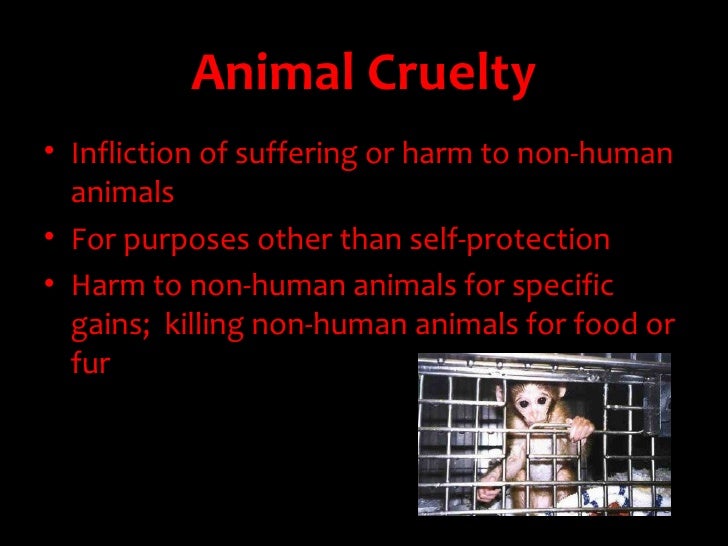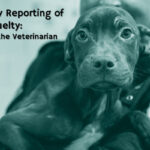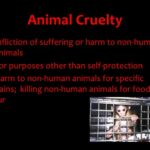The discourse surrounding animal cruelty often forges a chasm between emotional appeal and rational consideration. Defining animal cruelty encompasses a broad spectrum of actions, ranging from neglect and abandonment to outright violence and exploitation. The moral implications of these actions invite intense scrutiny and provoke philosophical inquiries into the ethics of human-animal relationships. Hence, one might wonder: is animal cruelty an unforgivable sin?
At its core, animal cruelty raises fundamental ethical questions. Can the infliction of suffering on sentient beings ever be justified? The principle of utilitarianism might suggest that actions should be judged based on their consequences. If a practice results in the greater good for a majority—such as animal farming for food—does it exonerate the cruelty inflicted on individual creatures? Alternatively, deontological perspectives emphasize intrinsic moral duties. This philosophical stance posits that causing harm to animals is inherently wrong, regardless of the benefits that might accrue to humans. Thus, we arrive at a moral paradox: the potential justifications of cruelty often clash with our inherent moral obligations to protect vulnerable beings.
Examining the various forms of animal cruelty reveals a complex moral landscape. At one end, there exists the overt brutality that is both reprehensible and easily condemned. Acts of violence—beating, torturing, or killing animals for sport—are often viewed as unequivocal injustices. Social and legal structures have increasingly recognized these acts as violations of basic ethical principles, leading to stricter laws and societal condemnation. However, even within this vivid landscape of cruelty, there remains ambiguity. What about practices that are commonplace yet are inherently harmful to animals?
The rise of factory farming exemplifies the moral dilemmas facing modern society. The sheer scale of animal suffering inflicted under the guise of efficient food production raises critical ethical questions. Animals are often kept in cramped conditions, deprived of basic welfare needs. While some argue that such practices are necessitated by the demand for cheap food, this reasoning cannot absolve the moral culpability involved. Instead, it reflects a disconcerting desensitization to the suffering endured by sentient beings. Thus, the question persists: can systemic cruelty be deemed forgivable in service of human needs?
Moreover, the phenomenon of neglect poses another layer of complexity. Neglect manifests in myriad forms—abandonment, failure to provide medical care, and insufficient sustenance. Such actions often stem from ignorance or unintended oversight rather than malevolent intent. However, the moral ramifications remain significant. The absence of action in the face of suffering raises ethical concerns. Is ignorance a viable excuse for the enduring misery suffered by an animal? Or does it reveal a fundamental failing in our moral responsibilities?
Historical and cultural contexts also inform our understanding of animal cruelty. Different societies wield varying attitudes towards animal treatment, influenced by religious beliefs, societal values, and economic imperatives. In some cultures, certain animals are revered and afforded protections, whereas, in others, they are seen primarily as commodities. This cultural relativism complicates the notion of an absolute moral stance on animal cruelty, suggesting that morality is often contingent on societal frameworks. Can we impose a universal moral standard across diverse cultures? This challenge underscores the necessity for a nuanced approach in tackling animal ethics.
In considering the contraposition of forgiveness and accountability, we must evaluate pathways to rehabilitation for offenders. Recognizing the potential for change is pivotal in addressing the underlying issues of cruelty. Education efforts aimed at fostering empathy towards animals can play a substantial role in reforming attitudes. Programs that promote awareness about animal sentience and welfare encourage societal shifts in perception and behavior. However, the question arises: can one truly rehabilitate an individual who perceives animals merely as objects? The spectrum of compassion towards animals is broad, and understanding the motivations behind cruelty is essential for fostering long-term changes.
Public awareness and activism remain vital in the fight against animal cruelty. Increasingly, communities are rallying against practices deemed unethical, challenging industrial norms and advocating for stronger animal welfare regulations. Campaigns designed to shift societal perceptions have proven effective in instigating change. Advocacy groups garner considerable attention to the cruel practices occurring in various sectors, pushing for reforms that prioritize animal welfare over profit. The power of collective action cannot be underestimated in this equation.
In conclusion, the question of whether animal cruelty is an unforgivable sin requires a multifaceted exploration. While acts of brutality often incite unequivocal condemnation, the nuances of neglect, systemic practices, and cultural differences create an intricate moral tapestry. Accountability, empathy, and reform are critical components in the discourse surrounding animal ethics. The complexities of animal cruelty compel us to confront our moral sensibilities, challenging us to reconcile our actions with our ethical obligations. Ultimately, striving towards a more compassionate world for all sentient beings is not only a moral imperative but also a reflection of our collective humanity.








